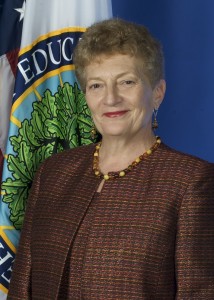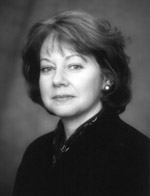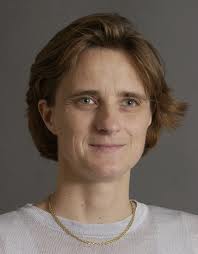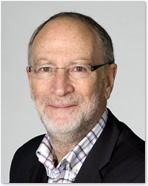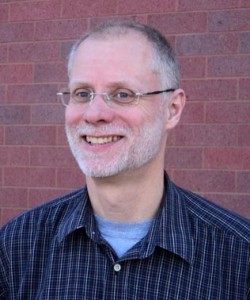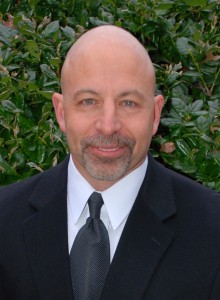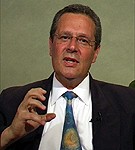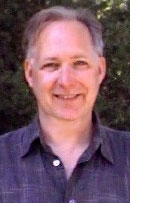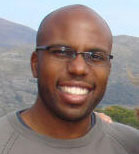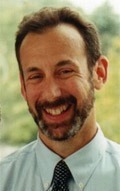Full Recordings Available Now: 2011 SharpBrains Summit
![]() We are pleased to announce that full recordings for all presentations delivered during the 2011 SharpBrains Summit: Retooling Brain Health for the 21st Century (March 30 — April 1, 2011) are now available both to Summit Participants and to non-Participants.
We are pleased to announce that full recordings for all presentations delivered during the 2011 SharpBrains Summit: Retooling Brain Health for the 21st Century (March 30 — April 1, 2011) are now available both to Summit Participants and to non-Participants.
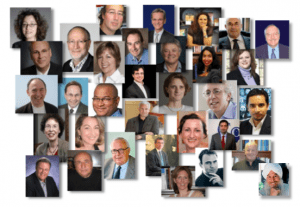 You can Learn More Here and Access 40+ Talks and 20+ hours of up-to-date information and analysis of brain science, technology and innovation, delivered by nothing short of a world-class faculty.
You can Learn More Here and Access 40+ Talks and 20+ hours of up-to-date information and analysis of brain science, technology and innovation, delivered by nothing short of a world-class faculty.
–> Registered Summit Participants can access all Session Recordings by clicking on the session titles in the Agenda page and using the same Username and Password they used to participate in the Summit.
–> Didn’t Register to Participate in the 2011 SharpBrains Summit but want to access all Session Recordings (20+ hours, 40+ speakers) Now? You can secure your log-in here.
We hope the information and analysis provided by these 40+ world-class speakers addressing this 3‑day agenda provide excellent value to you:
Dr. Brenda Dann-Messier, Assistant Secretary for Vocational and Adult Education, US Department of Education
Brenda Dann-Messier was nominated by President Obama as assistant secretary for vocational and adult education on July 14, 2009. On Oct. 5, 2009 she was confirmed by the U.S. Senate and began her official duties on Oct. 13, 2009. As the first assistant secretary for the Office of Vocational and Adult Education (OVAE) who is also an adult educator, Dann-Messier leads the Department’s efforts in adult education and career and technical education, as well as efforts supporting community colleges and correctional education. She oversees the administration of 11 grant programs in these areas, totaling approximately $1.9 billion annually. Dann-Messier is committed to collaboration, both within the Department and across federal agencies, including working with the U.S. Departments of Labor, Agriculture, Health and Human Services, Homeland Security and Commerce. OVAE’s vision is for all youths and adults to have multiple opportunities to obtain lifelong education and training in order to achieve rewarding careers and family lives, participate in their communities, and attain their personal goals. You can read more Here.
Dr. Molly Wagster, Chief of the Behavioral and Systems Neuroscience Branch in the Division of Neuroscience, National Institute on Aging (NIA)
Dr. Wagster oversees administration and development of research in cognitive and emotional change with age and in sensory and motor disorders of aging. She directly manages a portfolio of research in mechanisms of cognitive (memory, learning, attention, language) and affective (emotion) change with age that spans research from molecules to behavior. She serves as the NIH Project Officer for the development of the NIH Toolbox for Assessment of Neurological and Behavioral Function (contract supported by the NIH Blueprint for Neuroscience Research) and directs the trans-NIH Cognitive and Emotional Health Project. Dr. Wagster received her MS and PhD in Biopsychology from Tulane University and completed a postdoctoral fellowship in Neuropathology at The Johns Hopkins University School of Medicine.
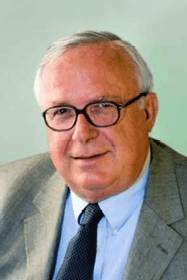
Michael Merzenich, Emeritus Professor, UCSF
For more than three decades, Dr. Merzenich has been a leading pioneer in brain plasticity research. In the late 1980s, Dr. Merzenich was on the team that invented the cochlear implant, now distributed by Advanced Bionics. In 1996, Dr. Merzenich was the founding CEO of Scientific Learning Corporation (Nasdaq: SCIL), and in 2004 became co-founder and Chief Scientific Officer of Posit Science. Dr. Merzenich has published more than 200 articles, received numerous awards and prizes, and been granted more than 50 patents for his work. His work was featured on the PBS specials “The Brain Fitness Program” and “Brain Fitness 2: Sight and Sound.” Dr. Merzenich earned his BS degree at the University of Portland and his PhD at Johns Hopkins. He retired from his long career as Francis A. Sooy Professor and Co-Director of the Keck Center for Integrative Neuroscience at the University of California at San Francisco in 2007. He was elected to the National Academy of Sciences, the Institute of Medicine, and recently launched the research/ technology incubator Brain Plasticity Inc.

Tracy Packiam Alloway, PhD, Director of the Center for Memory and Learning in the Lifespan, the University of Stirling, UK
Tracy was recently awarded the prestigious Joseph Lister Award by the British Science Association for her contribution to science. Tracy has developed the only standardized working-memory tests for educators published by Psychological Corporation, which to date has been translated into 15 languages and used to screen for working memory problems in students with dyslexia, motor dyspraxia (Developmental Coordination Disorder), ADHD and Autistic Spectrum Disorder. She provides consultancy to the World Bank and her research has received widespread international coverage in hundreds of media outlets, including Scientific American, the BBC, Reuters, ABC News, and NBC.
Daphne Bavelier, Professor, Department of Brain and Cognitive Sciences at the University of Rochester
Daphne Bavelier is a Professor in the Department of Brain and Cognitive Sciences at the University of Rochester. Her work focuses on brain plasticity and examines the role of experience in shaping the functional organization of the human brain as well as in pushing the boundaries of behavior. She studies populations with altered experience such as deaf individuals, video game players or individuals using a visual rather than a spoken language (e.g. users of American Sign Language), and asks basic questions such as: Do deaf individuals see better? What is the impact of video gaming on vision and cognition? How does the use of a visual, rather than spoken language, change the cerebral organization for language?
Prof. Cary Cooper, Science Co-ordination Chair, Foresight Project on Mental Capital and Wellbeing
Professor Cooper chaired the Science Co-ordination team of the Foresight Project on Mental Capital and Wellbeing. He is a Professor of Organizational Psychology and Health at the Lancaster University Management School, President of the British Association for Counselling and Psychotherapy, and Director and founder of Robertson Cooper Ltd. Prof. Cooper is recognised as a world-leading expert on stress and workplace issues, and received his BS and MBA degrees from the University of California, Los Angeles, and his PhD from the University of Leeds.
Dr. David Darby, Chief Medical Officer, CogState
Dr. David Darby is a Founder and Chief Medical Officer at CogState Ltd developing computerized cognitive testing instruments including for early detection of dementia and concussion in sports, and is also adjunct Associate Professor at the Centre for Neuroscience, and Senior Research Fellow of the Florey Neurosciences Institute, University of Melbourne. Prof Darby completed a PhD in neurology and neuropsychology and neurology training in 1991, and served as an instructor in Behavioral Neurology at Beth Israel Hospital, Harvard Medical School from 1992 to 1995.

Jerri Edwards, Associate Professor, University of South Florida
Dr. Edwards’ research is aimed toward discovering how cognitive abilities can be maintained and even enhanced with advancing age. Ultimately, the goals of Dr. Edwards’ research are to extend the mobility and independence of older adults thereby improving their quality of life. She is particularly interested in how cognitive interventions may help older adults to avoid or at least delay functional difficulties and thereby maintain independence. Much of her work has focused upon the functional ability of driving including assessing driving fitness among older adults and remediation of cognitive decline that results in driving difficulties.

Dr. Martha Farah, Director of the Center for Neuroscience and Society, University of Pennsylvania
Dr. Farah is the Director of the Center for Neuroscience and Society at the University of Pennsylvania and Annenberg Professor of Natural Sciences. Much of her career has been devoted to understanding the mechanisms of vision, memory, and executive function in the human brain. In recent years she shifted her research focus to a new set of issues that lie at the interface between cognitive neuroscience and “the real world.” These new issues of interest to me include the effects of socioeconomic adversity on children’s brain development and emerging social and ethical issues in neuroscience (“neuroethics”), mood regulation, and decision making.

Alvaro Fernandez, CEO, SharpBrains
Alvaro Fernandez is SharpBrains’ co-founder and Chief Executive Officer. He has been quoted by The New York Times, The Wall Street Journal, CNN, and others. Alvaro is a member of the Global Agenda Councils initiative run by the World Economic Forum, and recently co-authored The SharpBrains Guide to Brain Fitness. He started his career at McKinsey & Company and led the launch of several publishing and education companies in the US and Europe. Alvaro has an MBA and MA in Education from Stanford University, and enjoys teaching The Science of Brain Health at UC-Berkeley Osher Lifelong Learning Institute.

Lindsay Gaskins, CEO, Marble: the Brain Store
Lindsay started Marbles: The Brain Store in 2008 with the simple idea of finding the best brain games out there and putting them all in one place. Not just products for aging baby boomers concerned about memory loss and victims of brain disorders, but also anyone who wanted to improve focus and attention, enhance creativity, become better multi-taskers. Marbles opened three more Chicagoland stores in 2009 and four more stores in 2010. Previously, Lindsay was a Vice President at Sandbox Industries, a Chicago-based venture capital fund and incubator.
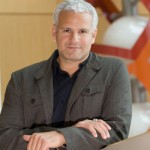
Adam Gazzaley, Director of the Neuroscience Imaging Center at the University of California, San Francisco
Dr. Gazzaley is a faculty member in the Neurology, Physiology and Psychiatry departments, and principal investigator of a cognitive neuroscience laboratory that conducts research on the neural mechanisms of attention and memory. A major focus of his research has been to expand our understanding of the alterations in the aging brain that lead to cognitive decline. His most recent studies explore how we can preserve and improve attention and memory as we get older. He has received many awards and honors for his research, including the 1997 Cortical Scholar Award, Pfizer/AFAR Innovations in Aging Award and the Ellison Foundation New Scholar Award in Aging.
Ken Gibson, President, LearningRx
In 2002, Dr. Gibson founded LearningRx, a network of more than 60 centers across the United States and abroad offering cognitive skills testing and training. The company has been named to Franchise Times “Fast 55” and Franchise Marketing Magazine’s “Top 100 New Franchises,” as well as an honorable mention on the Franchise 50 list put out by Franchise Business Review.
Prof. James Giordano, Director of the Center for Neurotechnology Studies and Vice President for Academic Programs, Potomac Institute
Prof. James Giordano is Director of the Center for Neurotechnology Studies and Vice President for Academic Programs at the Potomac Institute for Policy Studies. He is also a Senior Research Associate, Wellcome Centre for Neuroethics and Uehiro Centre for Practical Philosophy, University of Oxford, Oxford, UK, and Visiting Professor of Neurophilosophy and Neuroethics at Rheinische Friedrich Wilhelms’ Universität, Bonn, Germany. Prof. Giordano is Editor-in-Chief of the journal Philosophy, Ethics and Humanities in Medicine, and author of more than 120 publications in neuroscience, pain, neurophilosophy, and neuroethics. His ongoing research addresses the role of neuroscience and technology in medicine, social, and national defense applications, and explores the neuroethics of pain, pain care, and implications for the treatment of human and non-human organisms.
Evian Gordon, CEO, Brain Resource
Dr Evian Gordon, PhD, MBBCh, is the Chairman and Chief Executive Officer of Brain Resource. Dr Gordon has over 20 years of experience in human brain research. He was the founding director of the Brain Dynamics Centre at Westmead Hospital and a senior lecturer in the Department of Psychological Medicine at the University of Sydney. He edited the first book on “Integrative Neuroscience” and has more than 160 publications.
Dr. Walter Greenleaf, CEO, Virtually Better
Walter Greenleaf, Ph.D. is a research scientist trained in Neuro– and Behavioral Sciences at Stanford University, and founder and CEO of Virtually Better. His research, writing, and presentations focus on the use of simulation technology to improve physical medicine and neurological and cognitive rehabilitation. Dr. Greenleaf is known internationally as a pioneer in medical applications for advanced computer technology, and he has designed and developed several innovative products in clinical medicine in areas such as virtual reality, telemedicine technology, clinical informatics, point-of-care data collection via handheld devices, ergonomic evaluation technology, as well as rehabilitation technologies.
Muki Hansteen-Izora, Senior Design Researcher and Strategist, Intel’s Digital Health Group
Muki is also the Intel lead and co-PI for the Technology Research for Independent Living (TRIL) Centre’s Cognitive Function research strand, which is investigating how interactive media and gaming technologies can support cognition in older populations. Prior to joining Intel, Muki served as a lead researcher at Philips Research Labs. He holds a degree in Cultural Anthropology from the University of California at Santa Cruz, and completed his graduate training in Learning, Design, and Technology at Stanford University.
Dr. Joe Hardy, Senior Director of Research and Development, Lumos Labs
Dr. Hardy works with a network of research collaborators from institutions such as Stanford and Harvard to validate and improve the Lumosity.com cognitive training programs. Dr. Hardy has over 15 years of experience studying the brain, and has published 20 peer-reviewed scientific articles on neuroscience and cognition. He received his Ph.D. from the University of California, Berkeley in Cognitive Psychology and completed a Postdoctoral Research Fellowship at the University of California, Davis Medical Center.
 Kathleen Herath, Associate Vice President Health & Productivity, Nationwide Insurance
Kathleen Herath, Associate Vice President Health & Productivity, Nationwide Insurance
Kathleen Herath, RN, BSN CRRN, oversees the Health and Productivity strategy at Nationwide for the company’s 33,000 associates. She is responsible for the company’s integrated health and productivity program, which includes: health screenings, wellness programs, disability and disease management, health education, work life resources and walking programs and occupational health clinics. The Health and Productivity program at Nationwide has been awarded more than six awards in the last three years including the prestigious C. Everett Koop National Health Award and SharpBrains’ Brain Fitness Innovation Award.
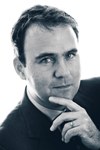
Jonas Jendi, CEO, Cogmed
Jonas Jendi joined Cogmed in 2001 as its chief executive officer. In 2007, Jendi opened Cogmed’s North American headquarters in Naperville, IL, where he is now based. Prior to Cogmed, Jendi provided strategic consulting for the Boston Consulting Group in Stockholm and Paris, and held management and consulting roles for various technology start-ups. He holds a MS from the Stockholm School of Economics.
Dr. Jeffrey Kaye, Director, NIA — ORCATECH
Dr. Kaye is Professor of Neurology and Biomedical Engineering at Oregon Health and Science University (OHSU). He directs the NIA — Layton Aging and Alzheimer’s Disease Center at OHSU and the Portland Veterans Affairs Medical Center. He also directs ORCATECH — the Oregon Center for Aging and Technology. He currently leads a large NIH study using ubiquitous, unobtrusive technologies for assessment of elders in their homes to detect changes signaling cognitive decline is imminent.
Dharma Singh Khalsa, M.D., President and Medical Director, Alzheimer’s Research and Prevention Foundation
He is a graduate of Creighton University School of Medicine in Omaha, Nebraska. Dr. Khalsa received his training in Anesthesiology at the University of California, San Francisco, where he was Chief Resident. He is also a graduate of the University of California, Los Angeles Medical Acupuncture for Physicians Program and has studied mind/body medicine at Harvard Medical School’s Mind/Body Medical Institute.
Robin Klaus, Chairman and CEO, Club One
Robin has more than 20 years of executive management experience in the fitness industry, including being president and chief operating officer of fitness manufacturer Star Trac, chairman of Planet Fitness, and former chairman of American Sports Institute. Mr. Klaus currently serves on the board of directors of Napa Sonoma Summer Search. Mr. Klaus holds a bachelor’s in international relations from American University, a master’s in international economics from University of Pittsburgh and a master’s in business administration from Stanford.

Kenneth Kosik, Co-Director, UC Santa Barbara Neuroscience Research Institute
Dr. Kosik is the Co-Director of UCSB Neuroscience Research Institute and Founder of CFIT. He received his M.D. degree from the Medical College of Pennsylvania, completed a neurology residency from Tufts New England Medical Center, and held various appointments at the Harvard Medical School. In the fall of 2004 he assumed the co-directorship of the Neuroscience Research Institute and the Harriman Chair at the University of California Santa Barbara. He has received multiple awards, including a Whitaker Health Sciences Award from Massachusetts Institute of Technology, the Derek Denny-Brown Neurological Scholar Award from the American Neurological Association, the Zenith Award from the Alzheimer’s Association, and a NASA Group Achievement Award.
Veronika Litinski, Director, MaRS Venture Group
Veronika Litinski coordinates the MaRS venture services programs delivered to entrepreneurs, investors and high-growth companies. She also provides advisory services to entrepreneurs and high growth companies, with a special focus on life sciences markets, specializing in corporate finance and business development. Veronika started her career as a research scientist at Lawrence Livermore Lab in Berkeley, California. Transitioning to the business world, Veronika founded a medical journal, earned her MBA (Finance) at the University of San Francisco, and worked in corporate finance with Union Bank and GATX Financial Corporation. Veronika is a member of Financial Women Association (FWA) and Financial Executives International (FEI).
 Henry Mahncke, CEO, Posit Science
Henry Mahncke, CEO, Posit Science
Dr. Mahncke is Posit Science’s new CEO. Previously, he led their Research & Outcomes team, designing scientific research and implementing outcomes trials to advance the company’s product development. Dr. Mahncke did his graduate work and earned his doctorate in neuroscience in Dr. Merzenich’s lab at UCSF. He then worked as an Engagement Manager for McKinsey & Company. While at McKinsey, Dr. Mahncke worked with leading global healthcare and consumer products companies in devising market strategies. Dr. Mahncke has also served in the consulate of the British government as a Science and Technology consultant. He holds a BA from Rice University and a PhD from UCSF.
Alexandra Morehouse, Chief Marketing Officer, AAA NorCal
Alexandra Morehouse is a veteran of membership-driven organizations having spent more than a decade with American Express, as well as a stint at Charles Schwab before joining AAA nearly nine years ago, where she became Chief Marketing Officer of AAA’s second-largest club, Northern California Nevada and Utah, with 4.2‑million members.
 Margaret Morris, Senior Researcher in Intel’s Digital Health Group
Margaret Morris, Senior Researcher in Intel’s Digital Health Group
Margaret studies the ways that emerging technologies can enhance mental and physical wellbeing. She conducts ethnographic research to identify needs and works with engineers to develop and evaluate exploratory prototypes. Prior to joining Intel in 2002, she studied technology adoption in Sapient’s Experience Modelling group. Margie completed her Ph.D. in Clinical Psychology with a minor in Behavioural Neuroscience at the University of New Mexico, her clinical internship at the San Francisco VA Medical Centre, and her postdoctoral fellowship at Stanford University. She has a B.A. in English from Haverford College.
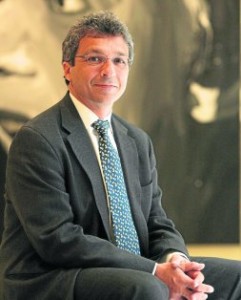
Alvaro Pascual-Leone, Director of the Berenson-Allen Center for Non-Invasive Brain Stimulation, Harvard Medical School
Dr. Pascual-Leone researches the physiology of higher cognitive functions and the study of brain plasticity in skill acquisition and recovery from injury. He is also the Program Director of the Harvard-Thorndike Clinical Research Center of the Beth Israel Deaconess Medical Center. Dr. Pascual-Leone obtained an M.D. and a Ph.D. in Neurophysiology from the Faculty of Medicine of Albert Ludwigs University in Germany, and trained at the University of Minnesota and the US National Institutes of Health. He greatly enjoys teaching and is the recipient of numerous awards.

Lena Perelman, Director Community Outreach, SCAN Health Plan
At SCAN Health Plan, one of the largest not-for-profit Medicare Advantage plans in the United States, Lena oversees SCAN’s community involvement programming, including the recently launched SCAN Van, the first mobile resource center built specifically for seniors and their caregivers. Perelman has more than 10 years of experience in healthcare and senior services, having worked at Talbert Medical Group, Secure Horizons and Los Angeles County Community and Senior Services. Perelman earned a master’s degree in gerontology and a master’s degree in public administration from the University of Southern California.
Paula Psyllakis, Senior Policy Advisor, Ontario Ministry of Research and Innovation
Paula Psyllakis is a Senior Policy Advisor at the Ontario Ministry of Research and Innovation, in Canada. From 2007–2009 Paula served as Chair of the Board of Directors of the Advocacy Centre for the Elderly. Prior to joining government, Paula worked for the Alzheimer Society of Toronto as the Education Coordinator and before that, with individuals with dementia. She has a Masters degree in Applied Linguistics and is primarily interested in language processes and dementia.
Patty Purpur, Director, Stanford Health Promotion Network
The Stanford Health Promotion Network (SHPN) is an association of employers, health plans, medical care providers, and local government officials who aim to improve employee health and productivity through focused health promotion initiatives and strategies. Patty graduated with a BA in Psychology from Stanford University in 1989. In 1992, she founded TimeOut Services to offer personal fitness services and expanded to Corporate Wellness Program design and management. Her company grew to 100 employees and over 5 million in sales in 2008.
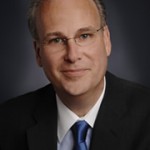
William Reichman, President, Baycrest
Dr. William E. Reichman is President and Chief Executive Officer of Baycrest, one of the world’s premier academic health sciences centres focused on aging and brain function. Dr. Reichman, an internationally-known expert in geriatric mental health and dementia is also Professor of Psychiatry on the Faculty of Medicine at the University of Toronto. He is a noted authority on the delivery of mental health and dementia services in nursing home settings. His previous academic activities have focused on the pharmacological treatment of Alzheimer’s disease and its associated apathy and negative symptoms. Dr. Reichman is a former President of the American Association for Geriatric Psychiatry and the Geriatric Mental Health Foundation.
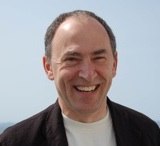
Peter Reiner, Co-Founder, National Core for Neuroethics at the University of British Columbia
Dr. Reiner’s current focus lies in the area of neuroethics, specializing in the non-medical impact of technology on the brain, with particular interests in the neuroethics of cognitive enhancement as well as the impact of modern technological society upon brain function. Dr. Reiner has a distinguished track record as a bench research scientist studying the neurobiology of behavioural states and neurodegenerative disease, and also was the President & CEO of Active Pass Pharmaceuticals, a drug discovery company that he founded to tackle the scourge of Alzheimer’s disease.
Dr. John Reppas, Director of Public Policy, Neurotechnology Industry Organization
Previously, Dr. Reppas was a fellow in the Department of Neurobiology, Howard Hughes Medical Institute, and Bio‑X program at the Stanford University School of Medicine. Reppas is an expert in next-generation neuromodulation technologies, brain-machine interfaces, and human brain imaging. He is an advisor to early-stage life science companies and their investors, and also an angel investor. He graduated from Oxford University with a Bachelors of Medicine, received his MD from the Harvard-MIT Division of Health Sciences and Technology, and a PhD from the Department of Neurobiology at Harvard Medical School.
Carlos Rodriguez, Chief Technology Officer, CogniFit
Mr. Rodriguez earned an Industrial Engineering Master Degree from the Polytechnic University Carlos III of Madrid, and is a graduate of the Grande Ecole INSA Lyon, France. Carlos began his professional career at Peugeot Group before joining the Uralita Group as a consultant in the New Technologies department in Madrid. Following this, Carlos joined the Consumer and Market Knowledge department at Procter & Gamble for 5 years, initially working in the Western Europe headquarters in Geneva before moving to Madrid, where he was responsible for overall consumer strategy design for several European brands and key distribution channels. Today Carlos is partner at Milk Capital in Paris and leads the CogniFit operations in Spain & South America.

Beverly Sanborn, Vice President of Activities and Memory Programs, Belmont Village Senior Living
Beverly has over two decades of experience designing and managing older adult services across the continuum of care, including healthy aging, Mild Cognitive Impairment and dementia. She is a graduate of U.C. Berkeley with a Masters in Social Work from UCLA.

Lisa Schoonerman, Co-founder, vibrantBrains
Lisa held a variety of technical and editorial positions with the Thomson Corporation in the Legal Publishing division (now ThomsonReuters), beginning in Rochester, NY and then coming to San Francisco to work for what was then Bancroft Whitney. Lisa’s work for Thomson included a 3‑year assignment in the UK, where she was Editorial Director of the group providing content for Westlaw UK, the first international application of the Westlaw database.
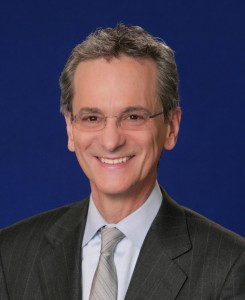
Dr. Gary Small, Director of the Center on Aging, UCLA Semel Institute for Neuroscience & Human Behavior
Dr. Small is a professor of psychiatry and his research, supported by the National Institute of Health, has made headlines in the Wall Street Journal, New York Times, and USA Today. Scientific American magazine named him one of the world’s leading innovators in science and technology. Dr. Small lectures throughout the world and frequently appears on The Today Show, Good Morning American, PBS, and CNN. He has written five books, including The New York Times best seller, The Memory Bible.

Nigel Smith, Strategy and Innovation Director, AARP
Nigel is responsible for developing decentralized innovation models for AARP and for consulting with business units in the execution of innovation processes. Prior to AARP, Nigel was the Director or Product Innovation for Visa USA. Other professional experiences have been with McKinsey & Company, Goldman Sachs Group, and KPMG. Nigel holds a Masters in Business Administration degree from Stanford University and a Bachelors in Business Administration degree from Howard University.
Joshua Steinerman, Asst. Professor, Albert Einstein College of Medicine – Montefiore Medical Center
Educated and trained at Harvard, Yale, Columbia, and the State University of New York, Dr. Steinerman is a behavioral neurologist and neuropsychiatrist who combines patient care with clinical research in brain aging and cognition. Dr. Steinerman co-directs the Einstein-Montefiore Center for Healthy Brain Aging and is the scientific founder of ProGevity Neuroscience.
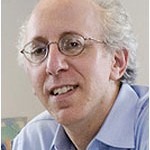
Yaakov Stern, Cognitive Neuroscience Division Leader, Columbia University
Dr. Stern directs the Cognitive Neuroscience Division of the Sergievsky Center and is Director of Neuropsychology for the Memory Disorders Clinic at the New York State Psychiatric Institute. He also directs the post-doctoral training program Neuropsychology and Cognition in Aging, and is a Professor of Clinical Neuropsychology in the Departments of Neurology, Psychiatry, and Psychology, as well as the in Sergievsky Center and the Taub Institute for the Research on Alzheimer’s Disease and the Aging Brain, at Columbia University College of Physicians and Surgeons.
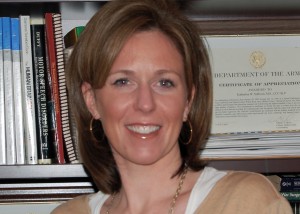
Kate Sullivan, Director of the Brain Fitness Center, Walter Reed Army Medical Center
Kate Sullivan M.S., CCC-SLP, CBIS completed her undergraduate and graduate degrees in Communication Sciences and Disorders at James Madison University. She has been a speech-language pathologist at Walter Reed Army Medical Center for 10 years where she recently helped launch the Brain Fitness Center (BFC), located in the WRAMC’s Military Advanced Training Center, to complement traditional care approaches.

Dr Michael Valenzuela, Leader of the Regenerative Neuroscience Group, UNSW
Dr Michael Valenzuela is a Research Fellow at the School of Psychiatry, University of New South Wales and Leader of the Regenerative Neuroscience Group at UNSW. His current research is aimed at understanding the competing forces of neuroplasticity and degeneration in the human brain, and includes studies of adult stem cells, animal models, neuroimaging, clinical trials and epidemiology. In 2006, he was awarded the prestigious Eureka Prize for Medical Research for his research on the relationship between dementia and complex mental activity.

Sophia Vinogradov, Interim Vice Chair of Department of Psychiatry, UCSF
Dr. Vinogradov is a Professor of Psychiatry in Residence; Interim Associate Chief of Staff for Mental Health, Associate Chief for Education and Research, Mental Health Service, at the San Francisco VA Medical Center; and Research Co-Director of the Prodrome Assessment, Research, and Treatment program at Langley Porter Psychiatric Institute, University of California, San Francisco. She received her M.D. from Wayne State University School of Medicine, obtained her psychiatry residency training at Stanford University School of Medicine, and completed a Psychiatric Neurosciences Research Fellowship at the Palo Alto VA Medical Center and Stanford University.

Thomas M. Warden, Vice President, Allstate’s Research and Planning Center (ARPC)
Mr. Warden is Vice President and Leader of Allstate’s Research and Planning Center (ARPC), where he helps set ARPC’s research agenda and manage its execution by 60-member ARPC staff, leading the development of significant innovations that contribute to Allstate’s profitable growth. In 2010 Allstate received SharpBrains’ Brain Fitness Innovation Award. Tom is a Chartered Financial Analyst and has an M.B.A. from Harvard University.
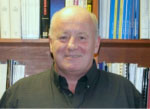
Keith Wesnes, Practice Leader, United BioSource Corporation
In 1986 Professor Wesnes founded Cognitive Drug Research (acquired in 2009 by United BioSource) to offer this system as a service in clinical trials. Professor Wesnes has published over 270 peer-reviewed research articles as well as more than 20 chapters and literature reviews. He holds Professorships at the Human Cognitive Neuroscience Unit at Northumbria University, Newcastle, UK and the Brain Sciences Institute at Swinburne University, Melbourne, Australia.

